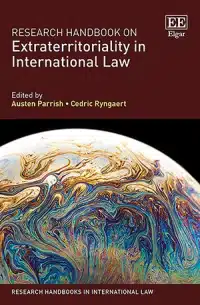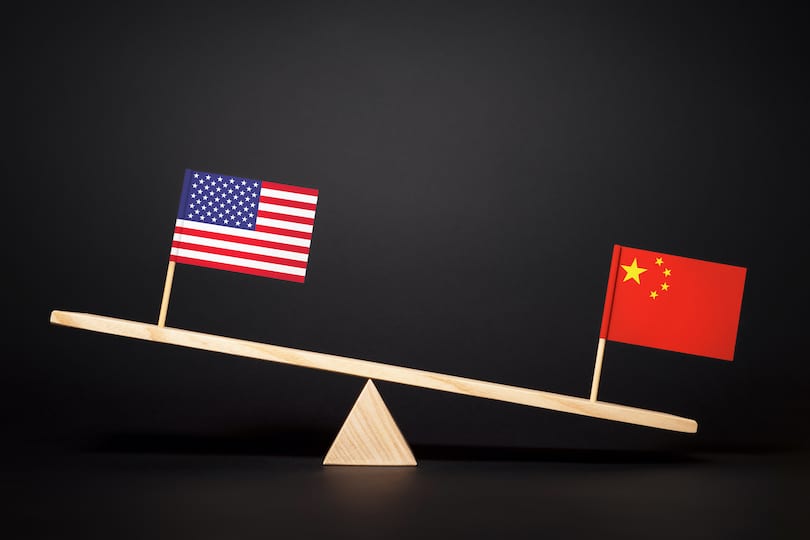Zooming Out of Forum Non Conveniens
A recently published note in the Columbia Law Review, written by Christabel Narh, draws a connection between the federal courts’ technological learning curve during the pandemic and the future of forum non conveniens. Zooming Our Way Out of the Forum Non Conveniens Doctrine argues that the federal courts’ trial-by-fire with videoconferencing and remote litigation during…
Continue ReadingTwo Conflicts Events in Oregon in May
Willamette University College of Law will be hosting two events, back to back, in May that may be of interest to TLB readers. Fifty Years in the Conflicts Vineyard On May 8-9, 2024, Willamette University College of Law and the Conflict of Laws Section of the Association of American Law Schools will hold a symposium…
Continue ReadingImportant New Handbook on Extraterritoriality
Many TLB readers will share my excitement and appreciation for the brand-new Research Handbook on Extraterritoriality in International Law, a volume of wide-ranging expert analyses edited by Austen Parrish and Cedric Ryngaert. The volume explores extraterritoriality from a full range of perspectives rarely (if ever) brought together in one place. I am reading it cover-to-cover…
Continue ReadingJia on the U.S.- China Rivalry
Mark Jia has posted an interesting new article on SSRN, American Law in the New Global Conflict. It considers how China has shaped U.S. law historically and how the current rivalry between the U.S. and China will play out for domestic law. The history is fascinating. It discusses not only the racist and xenophobic Chinese…
Continue ReadingEnforcing U.S. Securities Judgments Against Chinese Companies
Robin Hui Huang and Weixia Gu have an interesting paper up on SSRN about enforcing foreign securities judgments in China. In China’s Recognition and Enforcement of Foreign Securities Judgments Against Overseas-Listed Chinese Companies, they note that private securities litigation against Chinese companies in U.S. courts is increasing. But most Chinese companies listed in the United…
Continue ReadingWhen Is International Law a Political Question?
In a provocative essay posted on SSRN, The Political Question Doctrine and International Law, TLB Advisor Curt Bradley looks at the historical relationship between the political question doctrine and international law, arguing that “the political question doctrine emerged in part to allow the political branches, rather than the courts, to make determinations about this country’s—and…
Continue Reading“Sticky Beliefs” about Transnational Litigation
Empirical legal scholarship has been on the rise. But empirical research on transnational litigation remains relatively uncommon. This limits our knowledge of transnational litigation and, by hindering assessment of claims about transnational litigation, it allows what I call “sticky beliefs” to take hold. Sticky beliefs are assertions made without empirical support, which are then uncritically…
Continue ReadingNew Scholarship on Sanctions and Central Bank Immunity
Ingrid has a new paper out on recent developments in central bank immunity, focusing on sanctions by the United States and other countries involving Russian, Afghan, and Venezuelan central bank assets and their relationship to immunity. Some of the issues addressed in the paper involve transnational litigation in U.S. courts, including the entitlement of sovereign…
Continue ReadingVisiting Judges at Home and Abroad
Readers may be familiar with phenomenon of visiting judges—where judges from one federal court sit by designation on a different federal court. These judges are typically restricted from holding any other office or sitting on foreign or international courts. But after they leave they bench, they may do whatever they please. The latest issue of…
Continue ReadingRecent Scholarship on Ethnocentrism and Transnational Litigation
Asif Efrat has published Intolerant Justice: Conflict and Cooperation on Transnational Litigation. This interesting book argues that prejudice against foreign legal systems (or “out-group negativity”) plays an important role in domestic political debates over transnational litigation. The author is a political scientist, and the book accordingly focuses on domestic political dynamics and not just on…
Continue Reading




